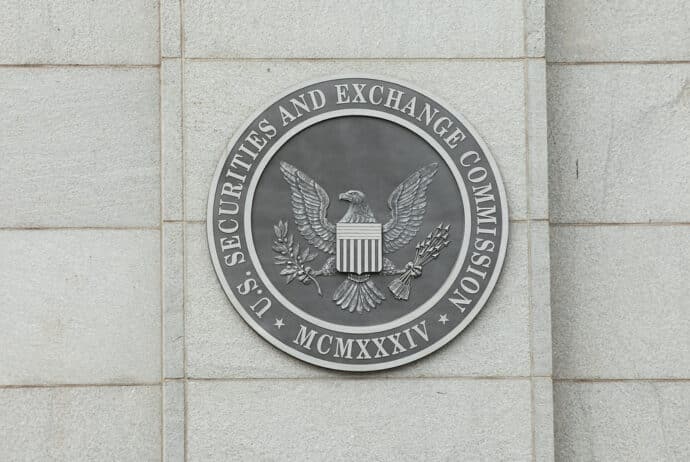Gary Genser, the Chairman of the US Securities and Exchange Commission (SEC), made it clear in January that he would get tough on crypto this year. Yesterday, he announced that the agency was looking to impose strict regulations on Decentralized Finance (DeFi) protocols.
In an announcement, Gensler said the SEC would soon come up with a new definition of what can be regarded as an exchange. According to the Chairman, the definition will include DeFi protocols such as decentralized exchanges (DEXs).
Gensler claims that most DEXs already fit the current description of an exchange; therefore, he expects them to comply with the stipulated securities laws fully.

CypherMindHQ.com Artificial Intelligence Crypto Trading System - Surpass the competition with this cutting-edge AI system! Utilize the prowess of innovative algorithms and amplify your crypto trading strategies with CypherMindHQ. Learn more today!
But SEC commissioner Hester Peirce does not support Gensler’s plans. She argues that Chairman’s announcement is sending a message that the agency is not interested in promoting innovation and healthy competition in the various financial markets. Instead, it is only seeking to protect the traditional financial markets.
Compliance Officer at crypto infrastructure company Fireblocks, Jason Alllegrante, also criticized Gensler’s plans, accusing the Chairman of attempting to drive businesses in the DeFi space out of the United States.
What’s DeFi?
DeFi makes activities like borrowing and lending loans easy and accessible to everyone, unlike traditional financial institutions. Through a decentralized application (dApp), crypto users can borrow funds without involving middlemen or even disclosing their personal information.
This nascent space has received praise for making decentralization possible but has also been criticized for lacking security. That is evidenced by increasing attacks on protocols witnessed in recent months.
Along with lending protocols, other DeFi platforms are DEXs such as SushiSwap, Uniswap, Curve Finance, and Pancakeswap, among others. They let anyone exchange one crypto for another without revealing their identity.
DEXs don’t request users to disclose where they reside. In addition, Virtual Private Network (VPN) applications let users evade laws by basing their Internet Protocol (IP) addresses in other countries. This allows them to carry out trades on various DEXs even if they’re prohibited in the US.
However, decentralized exchange Orca, which is the biggest Solana-based DEX, has cautioned its users against making use of VPN. The exchange recently banned American users from trading on the platform.

CypherMindHQ.com Artificial Intelligence Crypto Trading System - Outpace the competition with this high-end AI system! Leverage the capabilities of progressive algorithms and enhance your crypto trading performance with CypherMindHQ. Learn more today!
US Regulators Vs. the Crypto Industry
Meanwhile, users of Curve Finance, the third biggest DEX in terms of trading volume, have argued in the platform’s official Telegram channel that the SEC would only manage to enforce its DeFi-related rules in the United States and not outside the country.
In the last few weeks, the regulator has targeted two of the most popular America-based crypto exchanges, Kraken and Coinbase. The SEC claims that the two have been offering unregistered securities.
The DeFi space has also had its share of troubles with the US regulators. In 2022, the Coin mixer platform Tornado Cash was sanctioned by the Treasury Department for helping North Korean cybercriminals to launder dirty money and obscure their transactions.



